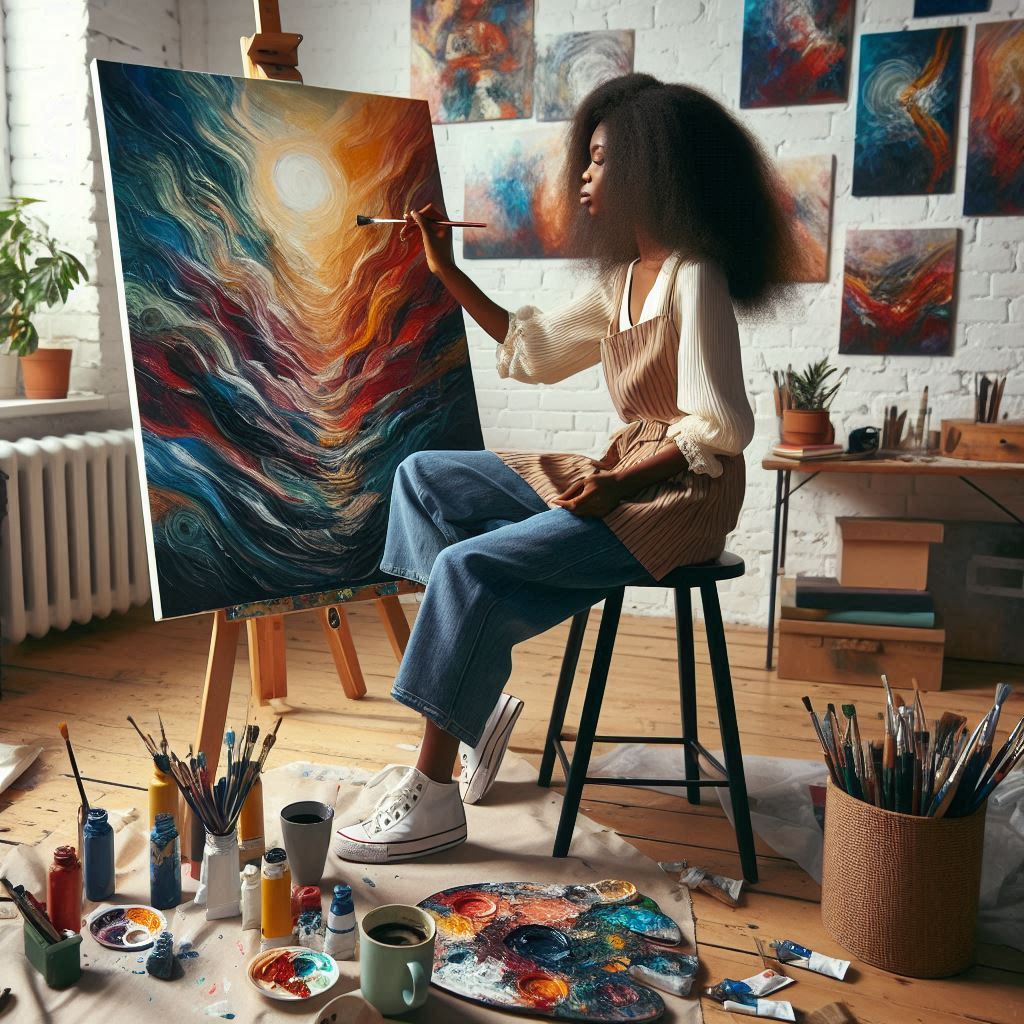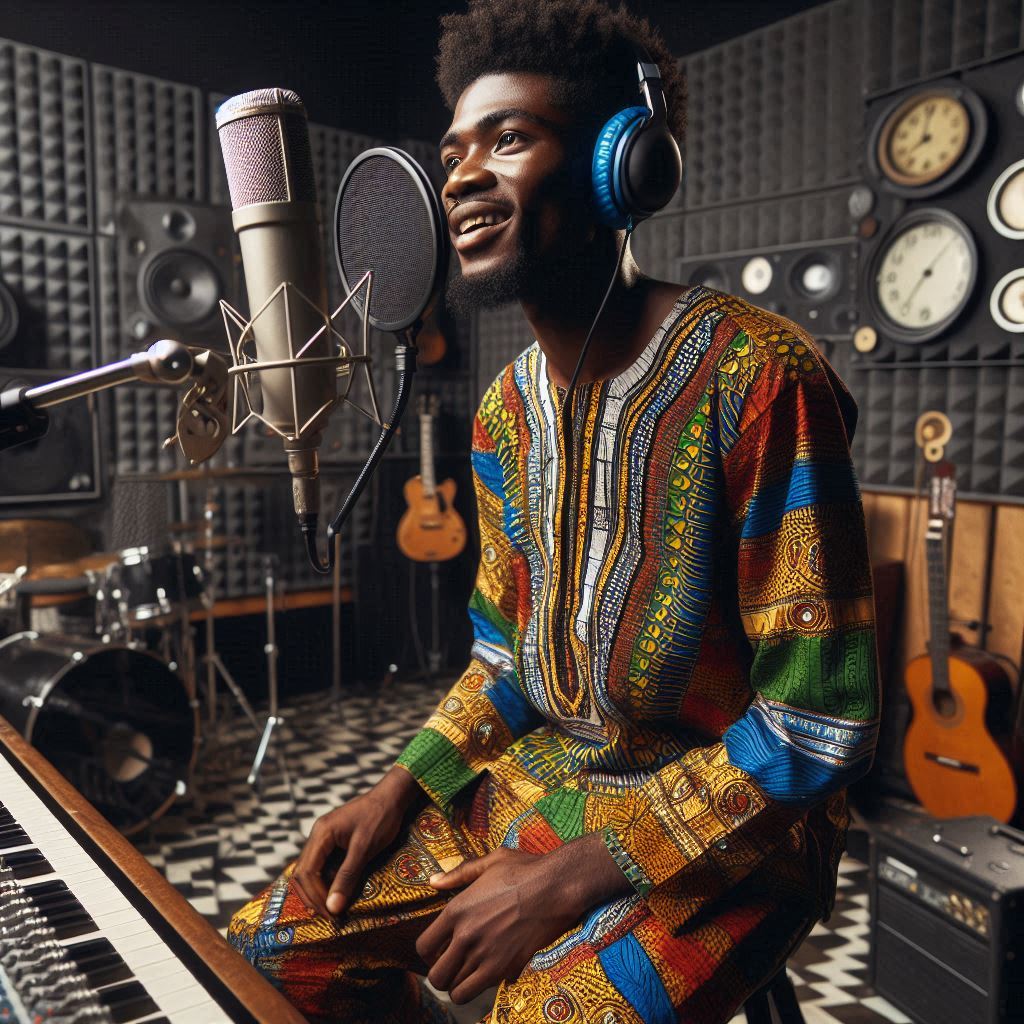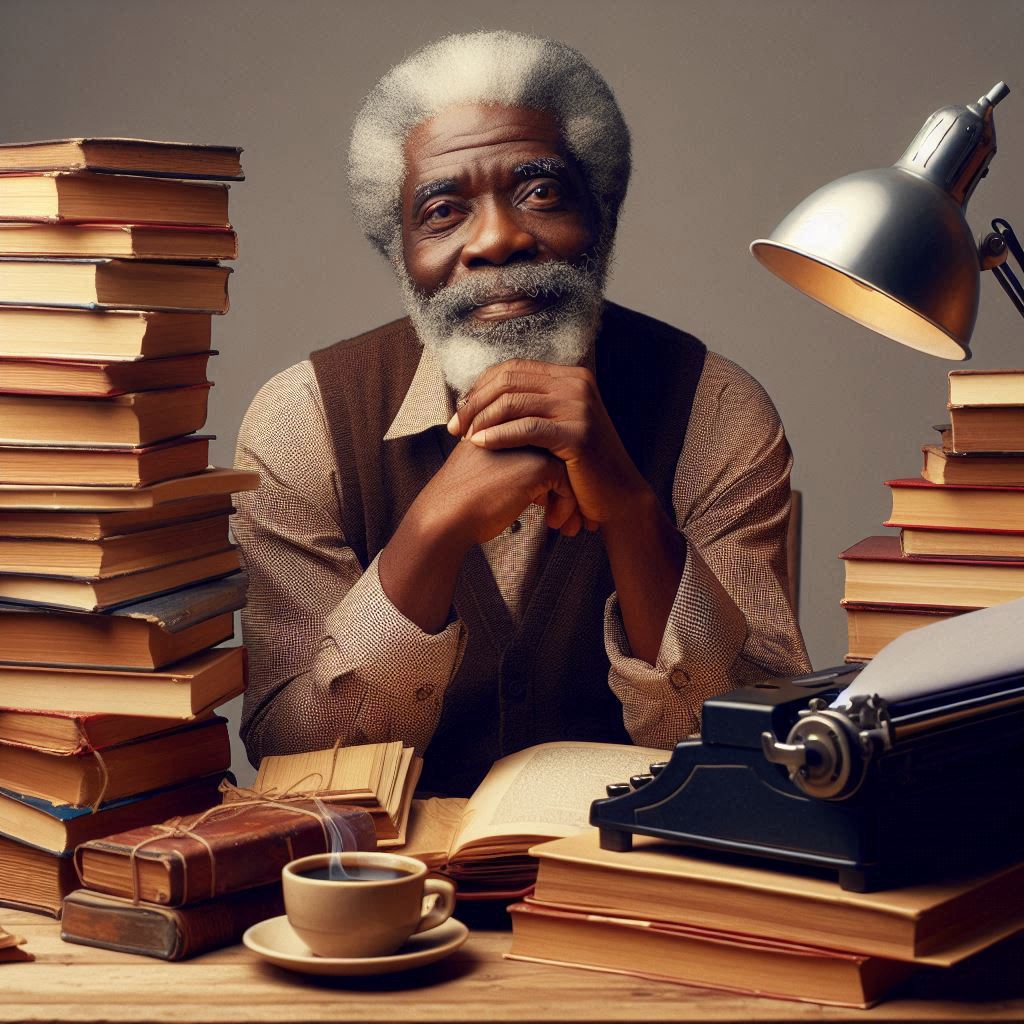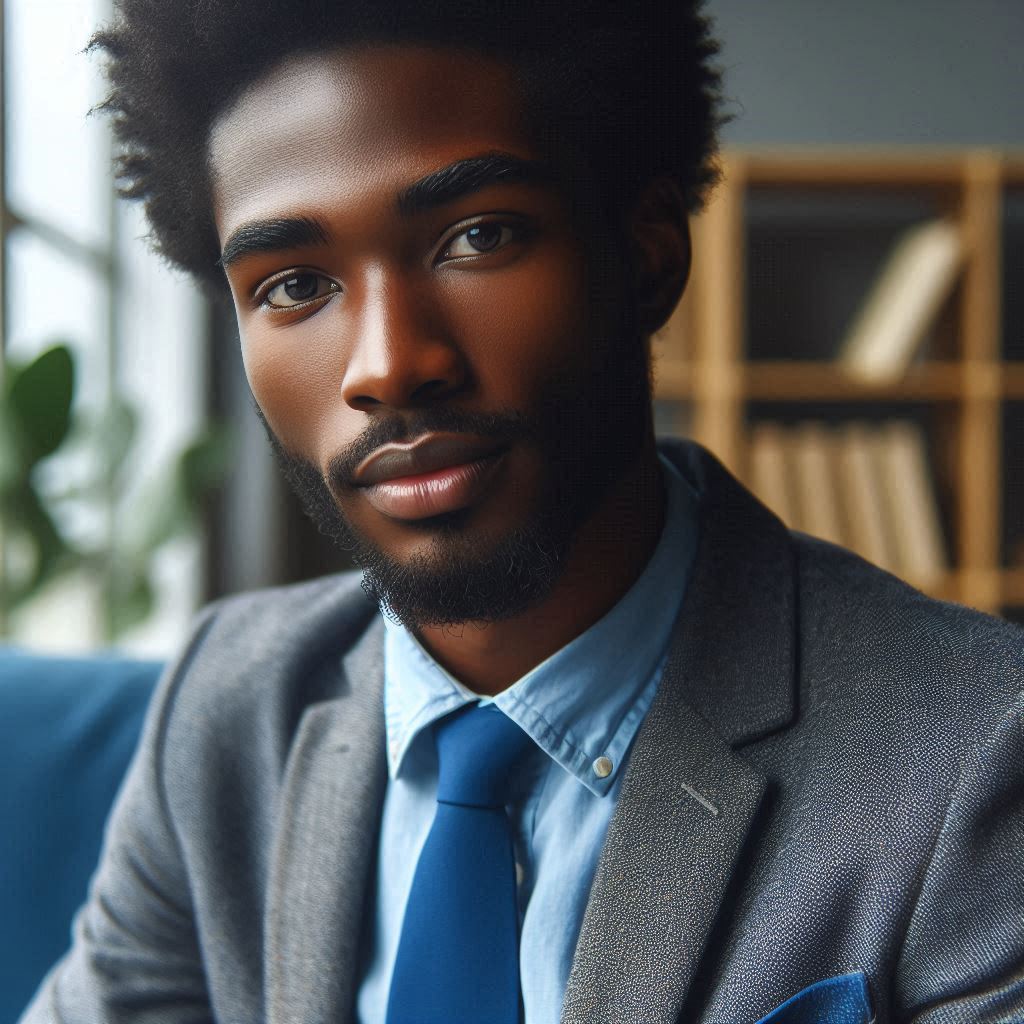Introduction
Nigeria’s artistic landscape is rich and diverse, encompassing music, theater, visual arts, and literature.
Funding plays a crucial role in the development of the arts.
Adequate financial support helps artists produce high-quality work and reach broader audiences.
However, Nigerian artists face significant funding challenges.
Limited government support hampers the growth of the arts sector.
Many artists rely on personal funds or seek sponsorships, which are often scarce.
Private sector investment in the arts remains minimal, further complicating funding efforts.
International grants exist but are highly competitive and difficult to secure.
The lack of consistent funding affects the sustainability and innovation within Nigeria’s artistic community.
Without proper financial backing, many talented artists struggle to showcase their work.
This blog explores these funding challenges and their impact on Nigerian artists.
Addressing these issues is essential to fostering a vibrant and thriving arts scene in Nigeria.
Lack of government support
One of the major obstacles faced by artists and creatives in Nigeria is the lack of adequate government support.
This lack of support manifests in various ways, ultimately hindering the growth and development of the arts sector in the country.
Limited funding allocation for the arts sector
Government funding for the arts in Nigeria is often insufficient and inconsistent.
The budget allocated to the arts sector is minimal compared to other sectors, making it challenging for artists to access the necessary resources to create and showcase their work.
This limited funding hampers the ability of artists to fully realize their creative potential and reach a wider audience.
Inconsistent policies and programs to support artists
Another issue faced by Nigerian artists is the lack of consistent policies and programs that are specifically designed to support and promote the arts.
Without clear guidelines and frameworks in place, artists struggle to navigate the industry and access opportunities for growth and recognition.
This inconsistency in government initiatives limits the ability of artists to thrive and contribute effectively to the cultural landscape of the country.
Neglect of the arts sector in national development agendas
Despite the undeniable cultural and economic value of the arts, the sector is often overlooked in national development agendas in Nigeria.
The government’s focus on other sectors such as oil and agriculture has resulted in a lack of investment and infrastructure support for the arts.
This neglect stifles the growth of the arts sector and prevents artists from fully realizing their potential as contributors to the country’s development.
Essentially, the lack of government support for the arts in Nigeria poses significant challenges for artists and creatives in the country.
Addressing these funding issues and implementing sustainable policies and programs are essential steps towards creating a vibrant and thriving arts sector that can contribute to the cultural and economic development of Nigeria.
Read: Scholarships for Christian Religious Studies Students
Limited Access to Grants and Scholarships
Nigerian artists face significant challenges due to limited access to grants and scholarships.
Few opportunities exist for artists to secure funding.
This scarcity creates a highly competitive environment where many talented individuals compete for limited resources.
Few Opportunities for Artists to Secure Funding
The number of available grants and scholarships for artists is minimal.
Government and private sector support for the arts remains insufficient.
Many artists rely on personal savings or informal sponsorships to fund their projects. This lack of formal financial support hinders their ability to produce high-quality work.
High Competition for Available Grants and Scholarships
High competition for available grants and scholarships further complicates the situation.
Numerous artists vie for the same limited opportunities, making it difficult for all but the most established names to secure funding.
Emerging and lesser-known artists often find themselves at a disadvantage in this highly competitive landscape.
The intense competition leads to many deserving projects remaining unfunded.
Talented artists with innovative ideas struggle to get their work off the ground. This bottleneck stifles creativity and limits the diversity of artistic expression in Nigeria.
Lack of Transparency in the Selection Process
The lack of transparency in the selection process adds another layer of difficulty.
Artists often face unclear criteria and opaque decision-making processes when applying for grants and scholarships.
This lack of transparency breeds distrust and discourages artists from applying.
Unclear guidelines and selection criteria make the application process daunting.
Artists expend significant time and resources preparing applications without any assurance of a fair evaluation.
This uncertainty can deter artists from pursuing grant opportunities altogether.
Moreover, favoritism and bias can influence the selection process.
Without transparent mechanisms, the distribution of funds may not always align with merit or need.
This situation undermines the integrity of funding programs and perpetuates inequities in the arts community.
Artists from underrepresented regions or backgrounds face additional barriers.
Limited networks and access to information further hinder their chances of securing funding.
These artists often lack the resources and connections needed to navigate the competitive grant landscape.
Efforts to address these issues are essential for a thriving arts sector.
Increasing the number and scope of grants and scholarships would provide more opportunities for artists.
Transparent and equitable selection processes would ensure that funding goes to deserving projects.
Promoting awareness and accessibility of funding opportunities can also make a significant difference.
Outreach programs and informational resources can help artists understand and navigate the application process.
Providing mentorship and support can enhance artists’ chances of securing funding.
Generally, limited access to grants and scholarships poses significant challenges for Nigerian artists.
Few opportunities, high competition, and lack of transparency hinder their ability to secure funding.
Addressing these issues is crucial to fostering a vibrant and inclusive arts community in Nigeria.
Enhancing funding opportunities and ensuring fair selection processes will empower artists to create and innovate, enriching Nigeria’s cultural landscape.
Read: Challenges in Teaching Christian Religious Studies
Dependency on Foreign Funding
Nigerian artists often rely heavily on international organizations and donor agencies for financial support. This dependency highlights the significant funding challenges within the local arts sector.
Many artists find it challenging to secure adequate funding from domestic sources. Consequently, they turn to foreign funding to sustain their projects and careers.
Reliance on International Organizations and Donor Agencies for Financial Support
International organizations and donor agencies play a crucial role in supporting Nigerian arts. These entities provide grants, scholarships, and sponsorships that many local artists depend on.
Without this support, numerous artistic projects would struggle to get off the ground. Foreign funding enables artists to access resources, networks, and platforms otherwise unavailable to them.
Vulnerability to Changes in Global Funding Trends
This heavy reliance on foreign funding, however, makes Nigerian artists vulnerable to global funding trends.
Changes in international priorities or economic downturns can severely impact available funding.
When donor agencies shift focus to other regions or causes, Nigerian artists suffer.
This volatility creates instability and uncertainty within the local arts sector.
Artists must constantly adapt to meet the evolving criteria of foreign donors.
They often adjust their projects to align with international priorities, sometimes at the expense of local relevance.
This dependency can lead to a misalignment between the artists’ original vision and the funding requirements.
Consequently, artists might dilute their cultural narratives to secure necessary funds.
Potential Loss of Creative Independence and Cultural Authenticity
Reliance on foreign funding can also result in a loss of creative independence.
Artists might feel pressured to conform to the expectations and preferences of international funders.
This pressure can stifle creativity and limit artistic freedom.
When artists tailor their work to appeal to foreign donors, they risk compromising their unique voice and perspective.
Additionally, dependency on foreign funding can affect cultural authenticity.
Nigerian artists may find themselves prioritizing themes and styles favored by international audiences.
This shift can lead to the erosion of indigenous cultural expressions and traditions.
Authentic local stories and cultural practices might be overshadowed by more globally palatable content.
The influence of foreign funding can create a disconnect between artists and their local communities.
When artists cater to international tastes, they may lose touch with the issues and experiences that resonate with their local audience.
This disconnect undermines the role of art in reflecting and addressing local realities.
Addressing the Dependency on Foreign Funding
Addressing the dependency on foreign funding is crucial for the sustainability of Nigerian arts.
Developing robust local funding mechanisms can reduce this dependency.
Government initiatives, private sector investment, and community-based support can provide much-needed financial resources.
Encouraging local patronage and philanthropy can also strengthen the arts sector.
By fostering a culture of supporting the arts, Nigeria can ensure the survival and growth of its cultural heritage.
Building a resilient and self-sufficient arts ecosystem will empower artists to create authentically and independently.
Overall, the dependency on foreign funding poses significant challenges for Nigerian artists.
Reliance on international organizations and donor agencies brings financial support but also vulnerability and potential loss of creative independence.
Addressing these issues requires a concerted effort to develop local funding sources and support structures.
By doing so, Nigeria can preserve its cultural authenticity and empower its artists to thrive.
Read: Impact of Christian Religious Studies on Nigerian Society
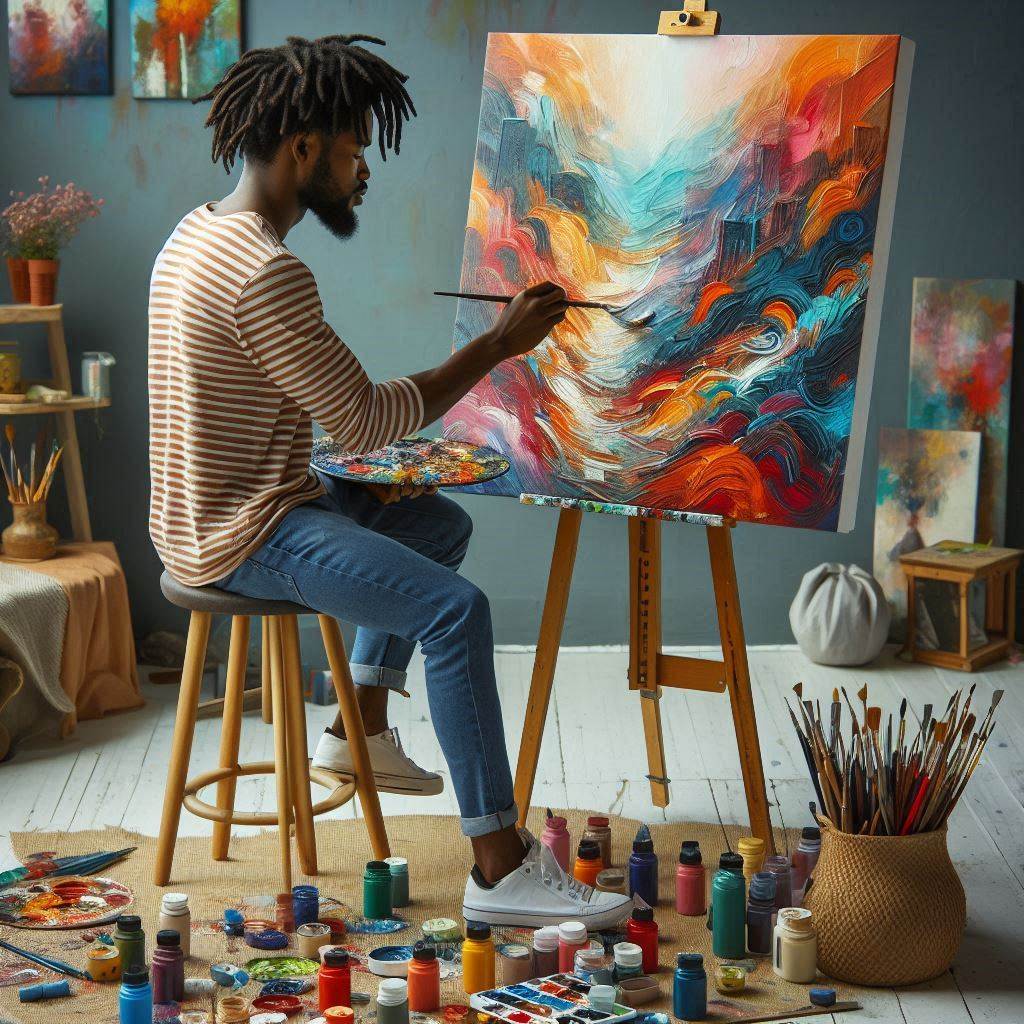
High Cost of Production and Exhibition
Nigerian artists face significant challenges due to the high cost of production and exhibition. Creating and showcasing art involves considerable expenses, often prohibitive for many artists.
These financial burdens hinder the ability to produce and exhibit high-quality works, impacting the overall growth of the arts sector.
Expenses Associated with Creating and Showcasing Art
Producing art requires substantial financial investment.
Artists need materials, equipment, and sometimes professional services, all of which come at a cost.
For visual artists, purchasing quality paints, canvases, and sculpting tools can be expensive.
For filmmakers and theater producers, costs include hiring actors, renting equipment, and securing locations.
Musicians face similar challenges with studio time, instruments, and production fees.
Showcasing art adds another layer of expenses.
Organizing exhibitions, concerts, or film screenings involves renting venues, transportation, and marketing.
These costs often exceed the financial capabilities of many artists, limiting their ability to present their work to the public.
Without adequate funding, artists struggle to reach broader audiences and gain recognition.
Limited Resources for Promotion and Distribution of Artworks
Promotion and distribution are crucial for the success of any artistic endeavor.
However, many Nigerian artists lack the resources to effectively market their work.
Advertising, whether through traditional media or digital platforms, requires significant investment.
Many artists cannot afford professional marketing services, limiting their reach and impact.
Additionally, distribution channels for artworks are limited.
Visual artists need galleries and online platforms to sell their pieces, while filmmakers and musicians require distribution networks to reach their audiences.
The absence of robust distribution systems hinders artists’ ability to monetize their work and sustain their careers.
Challenges in Finding Affordable Exhibition Spaces
Affordable exhibition spaces are scarce in Nigeria.
Many galleries, theaters, and concert venues charge high fees, making them inaccessible to many artists.
This scarcity of affordable spaces forces artists to seek alternative venues, which may not offer the same visibility or prestige.
Public spaces for art exhibitions are limited, and those available often come with bureaucratic hurdles and high costs.
This lack of accessible venues constrains artists’ ability to showcase their work, limiting public engagement with the arts.
Community centers and cultural hubs can play a crucial role in providing affordable exhibition spaces.
However, these centers are often underfunded and lack the infrastructure needed to support high-quality exhibitions.
Strengthening these community resources can provide artists with more opportunities to exhibit their work.
Addressing the High Cost of Production and Exhibition
Addressing the high cost of production and exhibition requires a multifaceted approach.
Increased funding from government and private sector sources can alleviate some financial burdens.
Grants, subsidies, and sponsorships can help artists cover production and exhibition expenses.
Promoting partnerships between artists and businesses can also provide mutual benefits.
Businesses can support the arts through sponsorships, while artists gain financial support and exposure.
Developing affordable and accessible exhibition spaces is equally important.
Investment in community centers and cultural hubs can provide necessary venues for artists to showcase their work.
Most importantly, the high cost of production and exhibition poses significant challenges for Nigerian artists.
Expenses associated with creating and showcasing art, limited resources for promotion and distribution, and scarce affordable exhibition spaces hinder artists’ growth.
Addressing these issues requires increased funding, strategic partnerships, and investment in community resources.
By tackling these challenges, Nigeria can foster a thriving and sustainable arts sector.
Read: Renowned Nigerian Psychologists to Follow
Limited commercial viability
Market challenges in selling art within Nigeria
The market for art in Nigeria has unique challenges that hinder its growth and profitability.
One of the main issues is the limited exposure and access to potential buyers.
Unlike some Western countries where art galleries and exhibitions are prevalent, Nigeria lacks adequate platforms for artists to showcase and sell their work.
This makes it difficult for artists to reach a wider audience and generate sufficient income from their creations.
Additionally, the purchasing power of the average Nigerian is relatively low, which affects the demand for art within the country.
Many people prioritize basic needs over luxury items like art, making it challenging for artists to sell their work at competitive prices.
Preference for foreign art over local creations
Another funding challenge in the Nigerian arts industry is the preference for foreign art over local creations.
There is a perception among some segments of society that Western art is more valuable and prestigious than indigenous art.
This bias leads to a lack of appreciation for Nigerian artists and their work, reducing the demand for local art and limiting the opportunities for artists to earn a sustainable income.
Limited investment in the arts by private sectors
Private sector investment in the arts is crucial for the growth and sustainability of the industry.
Unfortunately, many companies in Nigeria prioritize sectors like technology, finance, and agriculture over the arts when allocating funding.
This limited investment hinders the development of the arts sector and restricts the opportunities available to artists for financial support and collaboration.
Ultimately, the funding challenges faced by Nigerian artists are multifaceted and require a holistic approach to address.
By overcoming market challenges, changing perceptions about local art, and increasing private sector investment, the Nigerian arts industry can thrive and achieve its full potential.
Intellectual property rights issues
One of the key challenges facing artists in Nigeria is the issue of intellectual property rights.
This encompasses a range of problems that hinder the ability of artists to protect and profit from their creative works.
Lack of awareness and enforcement of copyrights
Many artists in Nigeria are not fully aware of the importance of copyright protection for their works.
This lack of awareness leaves their creations vulnerable to infringement and misuse.
Additionally, even when artists are aware of their rights, the enforcement of copyrights in Nigeria is often weak, making it difficult for artists to take legal action against infringers.
Risk of exploitation and plagiarism
Without strong copyright protection and enforcement, Nigerian artists are at high risk of exploitation and plagiarism.
Unethical individuals and organizations may take advantage of artists’ works without permission or compensation, leading to financial losses and reputational damage for the creators.
This not only affects individual artists but also undermines the development of the entire arts sector in Nigeria.
Difficulty in monetizing creative works
Monetizing creative works is a major challenge for artists in Nigeria due to the lack of effective intellectual property rights mechanisms.
Without proper copyright protection, artists struggle to commercialize their creations through licensing, sale, or other means.
This hampers their ability to generate income from their talents and discourages further investment in artistic endeavors.
All in all, addressing intellectual property rights issues is essential for improving the funding landscape of the Nigerian arts sector.
By raising awareness, strengthening enforcement, and providing support for artists to monetize their works, the government and relevant stakeholders can help nurture a thriving and sustainable creative ecosystem in Nigeria.
Lack of arts education and infrastructure
One of the major challenges facing the arts sector in Nigeria is the lack of arts education and infrastructure.
This issue encompasses several underlying problems that hinder the growth and sustainability of the arts industry in the country.
Insufficient training and educational programs for artists
Many aspiring artists in Nigeria struggle to find adequate training and educational opportunities to develop their skills and talents.
The limited availability of quality art education programs severely limits the potential of budding artists to hone their craft and achieve success in their chosen field.
Limited access to art schools and cultural institutions
Another significant obstacle is the restricted access to art schools and cultural institutions in Nigeria.
This lack of access makes it difficult for artists to access resources, network with peers, and showcase their works to a wider audience.
Without proper exposure and opportunities for growth, artists face challenges in gaining recognition and establishing themselves in the art world.
Inadequate facilities for artistic production and development
Furthermore, the inadequate facilities available for artistic production and development pose a major setback for artists in Nigeria.
The absence of well-equipped studios, galleries, and performance spaces hinders the creative process and limits artists’ ability to produce high-quality work.
Without the necessary infrastructure to support their artistic endeavors, artists struggle to fully realize their creative visions and reach their full potential.
Therefore, addressing the issues of a lack of arts education and infrastructure is crucial to overcoming the funding challenges in the Nigerian arts sector.
By investing in training programs, expanding access to art schools and cultural institutions, and improving facilities for artistic production, the country can create a more conducive environment for artists to thrive and contribute to the cultural and economic development of Nigeria.
Alternative sources of funding
One of the key challenges facing artists in Nigeria is the lack of adequate funding for their artistic endeavors.
Traditional avenues for funding such as government grants and art foundations may not always be readily available or accessible.
In order to overcome this obstacle, artists must explore alternative sources of funding to support their creative pursuits.
Crowdfunding and online platforms for fundraising
Crowdfunding has become a popular method for artists to raise funds for their projects.
Platforms such as Kickstarter, Indiegogo, and GoFundMe allow artists to reach a wide audience of potential supporters who are interested in contributing to their work.
By creating compelling campaigns and appealing to their fan base, artists can successfully raise the funds needed to bring their artistic visions to life.
Collaborating with corporate sponsors and partnerships
Another effective strategy for securing funding is through collaborations with corporate sponsors and partnerships.
By forming mutually beneficial relationships with businesses and organizations, artists can access financial support, resources, and exposure for their work.
Corporate sponsors may be interested in supporting artists as part of their corporate social responsibility initiatives, while partnerships with cultural institutions or educational organizations can provide artists with valuable opportunities for promotion and networking.
Seeking support from community initiatives and art collectives
Community initiatives and art collectives can also be valuable sources of funding for Nigerian artists.
These grassroots organizations often have a vested interest in supporting local talent and may provide grants, residencies, or exhibition opportunities for artists in need.
By actively participating in their local arts community and building relationships with other artists and arts organizations, artists can tap into a network of support that can help sustain their creative practice.
Lastly, while funding challenges may be a persistent obstacle for Nigerian artists, there are viable alternatives for securing financial support.
By exploring crowdfunding and online platforms, collaborating with corporate sponsors and partnerships, and seeking support from community initiatives and art collectives, artists can overcome these challenges and continue to pursue their artistic passions.
Conclusion
In closing, the funding challenges in Nigerian arts are multi-faceted and deeply entrenched.
Lack of government support, limited private investment, and a general lack of awareness about the importance of the arts all contribute to the struggles faced by artists and cultural institutions in the country.
As stakeholders, it is imperative that we take action to support and invest in the artistic community.
By providing financial resources, mentorship programs, and advocacy efforts, we can help nurture talent, promote cultural diversity, and preserve our artistic heritage.
Moreover, sustainable funding strategies are crucial for the growth and preservation of the arts in Nigeria.
This includes building partnerships with corporate sponsors, leveraging digital platforms for crowdfunding, and establishing endowment funds to ensure long-term financial stability for artists and cultural organizations.
It is only through concerted efforts and a commitment to sustainable funding that we can overcome the challenges facing the Nigerian arts industry.
Let us work together to create a vibrant and thriving artistic ecosystem that benefits both creators and society as a whole.
Transform Your Career with Expert Guidance
Get personalized mentorship consulting that’s tailored to your unique path. Our expert advice is actionable and exclusive.
Get Started
